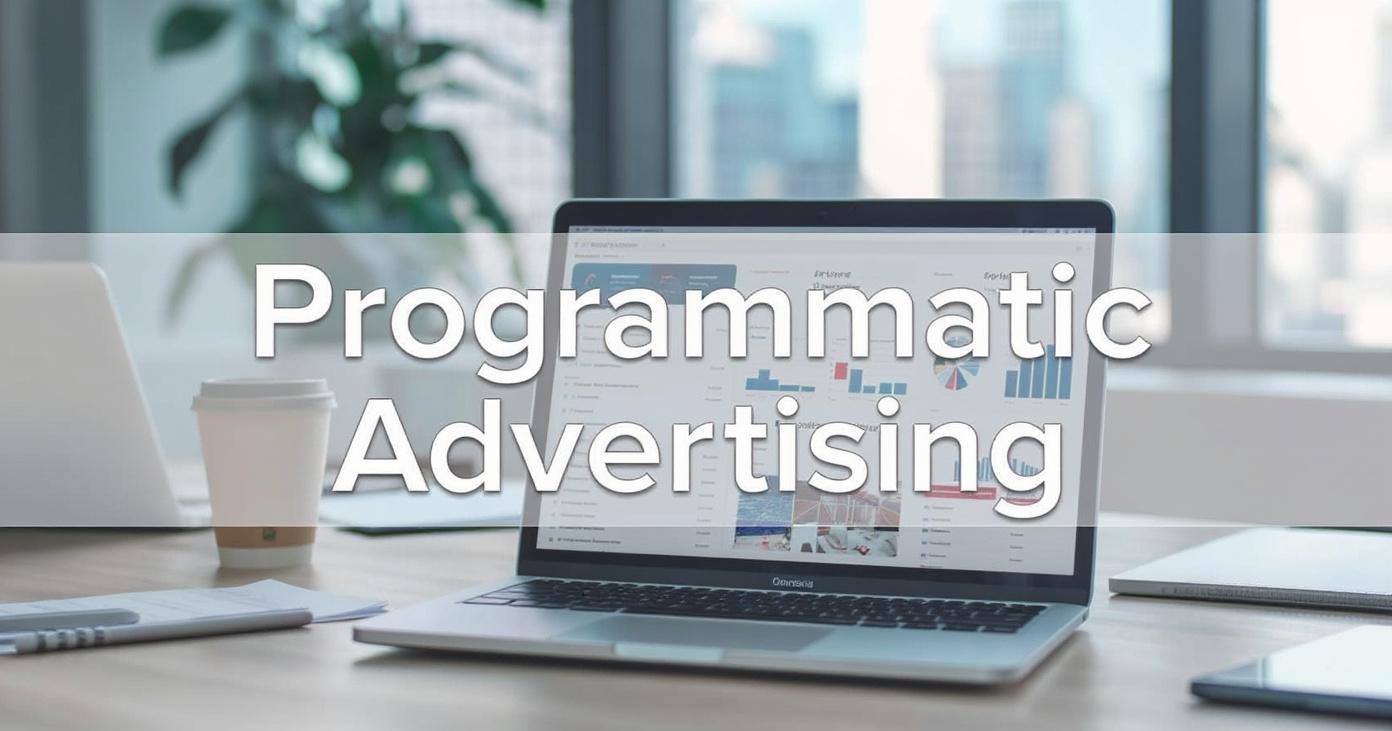Scaling B2B Brands via Programmatic Ad Strategies

In the ever-evolving B2B marketing landscape, reaching the right audience efficiently is essential for growth. Programmatic Advertising B2B empowers businesses to automate ad buying and target decision-makers with data-driven precision. By leveraging this approach, companies can maximize ROI, improve lead quality, and ensure marketing budgets are spent effectively to drive meaningful engagement.
Programmatic advertising uses artificial intelligence and real-time bidding (RTB) to automate digital ad purchases. Unlike traditional methods that rely on manual processes, programmatic platforms analyze audience behavior, demographics, and intent to deliver ads to the most relevant prospects. In a B2B context, this ensures campaigns reach professionals and decision-makers who are likely to engage, reducing wasted spend and improving overall marketing efficiency.
Understanding Programmatic Advertising
Programmatic advertising is the automated buying and placement of digital ads using software and data insights. For B2B marketers, it allows precise targeting by industry, company size, job title, and online behavior. Data-driven campaigns ensure relevant messaging reaches key decision-makers, improving engagement and increasing the likelihood of conversions.
Key Components of Programmatic Advertising
Effective programmatic campaigns rely on core components: Demand-Side Platforms (DSPs), Supply-Side Platforms (SSPs), Data Management Platforms (DMPs), and ad exchanges. DSPs enable marketers to efficiently purchase ad inventory across multiple publishers. SSPs help publishers sell inventory to the highest bidder. DMPs consolidate first-party and third-party data for accurate targeting. Ad exchanges act as real-time marketplaces for buying and selling inventory. Together, these tools form a seamless ecosystem for executing high-performing campaigns.
Types of Programmatic Advertising
B2B marketers can choose from real-time bidding, private marketplaces, and programmatic direct. Real-time bidding allows instant competition for ad impressions, optimizing cost and reach. Private marketplaces offer exclusive access to premium inventory for brand-safe campaigns. Programmatic direct provides guaranteed impressions through pre-negotiated deals, ensuring reliability for high-value campaigns. A strategic mix of these approaches ensures both precision and scale.
Advantages for B2B Companies
Programmatic advertising offers several advantages for B2B marketers. It provides precise audience targeting, cost efficiency, and real-time optimization. By delivering personalized ads to decision-makers, campaigns can improve lead quality and accelerate the sales cycle. Transparency and analytics allow continuous monitoring and adjustments, ensuring campaigns remain aligned with business goals. Automation also frees marketing teams to focus on strategy and creative innovation.
Audience Segmentation and Targeting
Programmatic advertising enables granular audience segmentation. B2B marketers can target based on industry, job role, company size, online behavior, and engagement history. Behavioral targeting ensures ads reach users who have interacted with relevant content, while contextual targeting places ads on suitable websites. This precision reduces wasted impressions and increases the likelihood of converting high-value prospects.
Creative Strategy in Programmatic Campaigns
Data-driven targeting must be paired with compelling creative content. Ads should address the specific challenges and goals of B2B audiences. Dynamic creative optimization (DCO) automates personalization, delivering relevant messages to each viewer. Using a mix of display, video, and native content enhances engagement, brand recall, and lead generation effectiveness.
Measuring Programmatic Campaign Performance
Monitoring key performance indicators (KPIs) such as click-through rates (CTR), cost per lead (CPL), conversion rates, and return on ad spend (ROAS) is essential. Analytics tools provide insights into audience behavior, ad frequency, and attribution, allowing marketers to optimize campaigns in real time. Accurate measurement ensures campaigns remain aligned with business objectives and generate high-quality leads.
Challenges in Programmatic Advertising
Programmatic advertising faces challenges such as ad fraud, viewability issues, and privacy regulations. Using verified platforms, implementing anti-fraud measures, and adhering to GDPR or other laws mitigates these risks. Continuous testing and optimization maintain campaign efficiency while protecting brand reputation and audience trust.
Integrating Programmatic Advertising with B2B Strategy
To maximize results, programmatic advertising should integrate with broader B2B strategies like account-based marketing (ABM), content marketing, and sales campaigns. Insights from campaigns can guide multi-channel decisions, highlight high-performing segments, and optimize budget allocation. This holistic approach ensures consistent messaging and enhances overall campaign effectiveness.
Future Trends in Programmatic Advertising B2B
The future of programmatic advertising is driven by AI, machine learning, and predictive analytics. B2B marketers will see smarter automation, improved personalization, and more efficient targeting. First-party data will play a bigger role due to privacy regulations, and technology advancements will enhance efficiency, lead quality, and ROI. Staying ahead of these trends ensures a competitive advantage in a rapidly evolving digital landscape.
Best Practices for B2B Programmatic Campaigns
Successful programmatic campaigns require clear objectives, accurate audience data, and the right platform selection. Testing creative variations, monitoring KPIs, and optimizing campaigns based on insights is critical. Alignment between marketing and sales teams ensures campaigns support business goals. Following these best practices allows B2B companies to reduce wasted spend, increase engagement, and achieve scalable growth.
Read Full Article : https://acceligize.com/featured-blogs/a-complete-guide-to-programmatic-advertising-for-b2b-growth/
About Us : Acceligize is a global B2B demand generation and technology marketing company helping brands connect with qualified audiences through data-driven strategies. Founded in 2016, it delivers end-to-end lead generation, content syndication, and account-based marketing solutions powered by technology, creativity, and compliance.
- Art
- Causes
- Crafts
- Dance
- Drinks
- Film
- Fitness
- Food
- Juegos
- Gardening
- Health
- Home
- Literature
- Music
- Networking
- Other
- Party
- Religion
- Shopping
- Sports
- Theater
- Wellness



